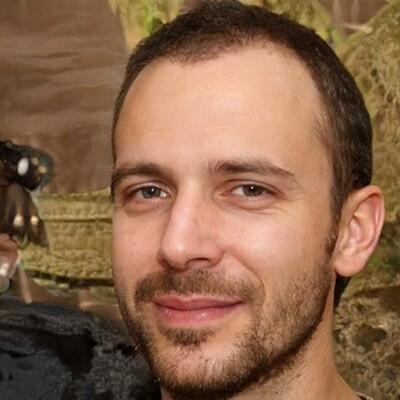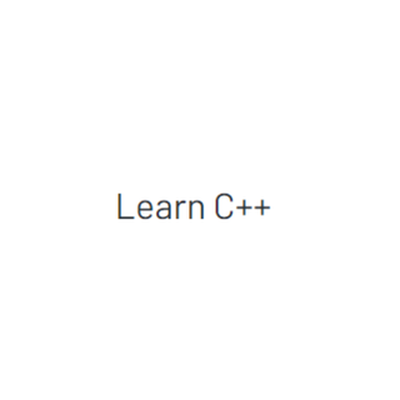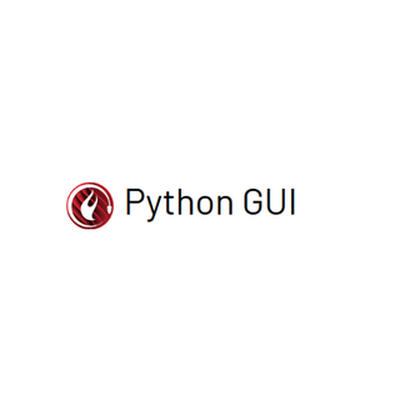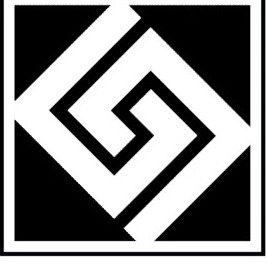An Israeli air strike on a school building sheltering displaced Palestinians in Gaza City has killed more than 70 people, the director of a hospital has told the BBC.
Fadl Naeem, head of al-Ahli Hospital where many of the casualties were taken, said those were the victims who had been identified so far, with the remains of many others so badly disfigured that identification was difficult.
An Israeli military spokesman said al-Taba’een school "served as an active Hamas and Islamic Jihad military facility", which Hamas denies.
The strike has been criticised by Western powers, as well as regional countries which have said it shows Israel has no desire to reach a ceasefire or end the Gaza war.
Israel has attacked several such shelters in Gaza in the past few weeks.
According to the United Nations, 477 out of 564 school buildings in Gaza had been directly hit or damaged as of 6 July, with more than a dozen targeted since.
Al-Taba’een school housed more 1,000 people - having recently received dozens of displaced people from the town of Beit Hanoun, after the Israeli army ordered them to leave their homes.
The building also served as a mosque and the Israeli strike hit during dawn prayers, witnesses said.
Jaafar Taha, a student who lives near the school, told the BBC the sound of the bombing was followed by screaming and noise.
"'Save us, save us,' they were screaming," he said.
"The scene was horrific. There were body parts everywhere and blood covering the walls."
Salim Oweis, spokesman for the UN children's agency, Unicef, told the BBC the attack was "really outrageous".
"All those schools are really packed with civilians, children, mothers and families, who are taking refuge in any empty space whether it's a school or it's a mosque, whatever it is, even in hospital yards."
Israel's military said it had "precisely struck Hamas terrorists operating within a Hamas command and control centre embedded in the al-Taba'een school".
A statement by the Israel Defense Forces (IDF) and the Israeli Security Agency said "at least 19 Hamas and Islamic Jihad terrorists" were "eliminated" in the attack.
An earlier statement by the IDF said "approximately 20 Hamas and Islamic Jihad militants" had been "operating" at the compound.
Earlier estimates of the number of dead were also in the dozens, with the Hamas-run health ministry's ambulance service saying more than 60 had been killed, according to AP. The civil defence agency put the number at more than 90.
The BBC cannot independently verify figures from either side.
The Israeli spokesman said the casualty figures released by Hamas officials "do not align with the information held by the IDF, the precise munitions used, and the accuracy of the strike".
Hamas described the attack as a "horrific crime and a dangerous escalation" in Israel's "war of extermination against the Palestinian people".
Fatah, Hamas's political Palestinian rival in the Israeli-occupied West Bank, said Israel's aim was "to exterminate Palestinians through a policy of cumulative killing".
The US said it was "deeply concerned" about reports of civilian casualties and was seeking further details.
A US National Security Council spokesman said: "We know Hamas has been using schools as locations to gather and operate out of.
"But we have also said repeatedly and consistently that Israel must take measures to minimise civilian harm."
He said "far too many civilians continue to be killed and wounded", adding that it "underscores the urgency of a ceasefire and hostage deal".
Philippe Lazzarini, head of Unrwa, the UN agency which helps Palestinians, said: "It’s time for these horrors unfolding under our watch to end."
The French foreign ministry said it condemned the strike "in the firmest of terms".
"For several weeks, school buildings have been repeatedly targeted, with an intolerable number of civilian victims," it said.
"Israel must respect international humanitarian law," it added.
The UK's Foreign Secretary, David Lammy, said he was "appalled" by the "tragic loss of life" and stressed the need for "an immediate ceasefire".

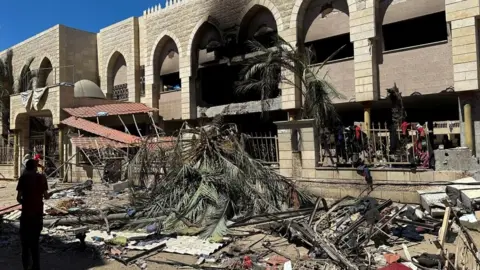 Reuters
ReutersThis strike has again drawn graphic attention to a controversial dynamic of the Gaza war.
Israel claims that Hamas is using civilian infrastructure to plan and carry out attacks, and that is why it has been targeting hospitals and schools - sites protected under international law.
Hamas has consistently denied the accusations.
Whatever the case, these are both locations where Gazans displaced by the conflict have sought shelter – especially in schools, more than 80% of which have been directly hit or damaged.
Since early July, Israel has struck at least 13 of them - including four in a four-day period - each time declaring that they take steps to decrease the risk of harming civilians, including the use of precise munitions.
Many of the schools were run by the UN before the war, and the UN has strongly condemned the strikes.
This seems a particularly deadly incident. No doubt it will increase pressure for a ceasefire, but the reaction of regional mediators suggests concern that it could further set back struggling efforts to achieve one.
Egypt, one of the mediators, said Israel’s “deliberate killing” of unarmed Palestinians showed that Israel lacked the political will to end the war.
Qatar, also involved in ceasefire talks, demanded an urgent international investigation.
Hamas-led gunmen killed about 1,200 people in an attack on Israel on 7 October, taking 251 others back to Gaza as hostages.
That attack triggered a massive Israeli military offensive on Gaza and the current war.
More than 39,790 Palestinians have been killed in the Israeli campaign, according to Gaza's Hamas-run health ministry.
Additional reporting by Rushdi Abualouf, Gaza correspondent located in Istanbul, Turkey








